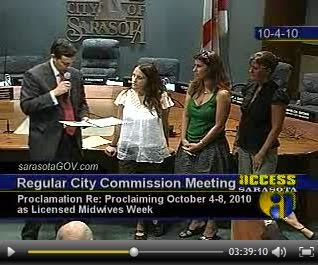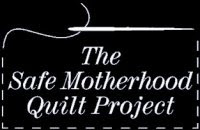Born in Sarasota fully endorses the following position statement from Florida Friends of Midwives against the Agency for Health Care Administration proposed rule change 59-A, restricting YOUR access to birth in a Florida licensed birth center. I encourage you to contact your elected officials as well as Mr. William McCort at AHCA and voice your stance on this issue.

Florida Friends of Midwives believes that a woman has a right to choose her birth attendant and her place of birth. It has come to our attention that the Agency for Health Care Administration (AHCA) is currently seeking to amend the rules that govern the operation of birth centers in Florida. The proposed rule changes, should they be adopted, will restrict a woman's access to out-of-hospital birth for conditions that are widely accepted by the CDC and other regulatory bodies to be safe and normal factors not worthy of high risk status.
This past March, AHCA held an administrative hearing to review proposed birth center rule changes. Prior to that hearing our understanding was that any changes would serve the purpose of bringing birth center rules into greater symmetry with the rule that govern the practice of licensed midwifery. It was also our understanding that interested parties including state midwifery professional organizations and consumer advocacy groups would be kept apprised of further meetings and decision-making regarding this issue. Unfortunately it is now clear that there have been several meetings held in the last several months and additional language was been incorporated into the proposed rule changes based in large part from internal suggestions by the Board of Nursing. These proposed changes include: eradicating the option for vaginal birth after cesarean (VBAC) in birth centers; increasing mandatory prenatal testing without recourse; limiting access for any woman who has ever tested positive for Group Beta Streptococcus bacteria; removing the ability for licensed midwives in birth center settings to administer lidocaine; eliminating informed consent for multiparous women; and finally, restricting care providers including licensed midwives, certified nurse midwives, family practitioners or obstetricians, from practicing as they would in a hospital or out of hospital setting, including conducting physicals, evaluating risk score criteria or other limitations that bind them beyond their own practice regulations.
These changes were proposed in a way that does not follow the accepted and appropriate method for amending rules as per Florida's Sunshine law. It also effectively keeps the licensed midwives, certified nurse-midwives and obstetricians who own birth centers out of the process, as well as the women and families who utilize their services.
Please visit our website at www.flmidwifery.org for additional information including a copy of the most recent proposed rule changes and a template letter for contacting AHCA staff. Right now it is essential that consumers make our voices heard. Should this rule change be accepted, as many as one half of the women who currently choose to give birth in Florida's birth centers will be unable to do so legally.
























